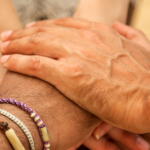 Watching the critically-acclaimed film, “Selma,” last weekend provided a stark reminder of how much progress this country has made toward fulfilling the vision of Dr. Martin Luther King Jr. and the Civil Rights Movement. It was also a reminder of how far we have yet to go, especially in the state of King’s birth.
Watching the critically-acclaimed film, “Selma,” last weekend provided a stark reminder of how much progress this country has made toward fulfilling the vision of Dr. Martin Luther King Jr. and the Civil Rights Movement. It was also a reminder of how far we have yet to go, especially in the state of King’s birth.
An early scene shows King relaying one of his famous principles connecting the struggle for racial equality in America to the struggle for economic opportunity. He asks his friend, confidant and fellow civil rights leader Rev. Ralph Abernathy what is the use of integrating lunch counters if black people still could not afford the items on the menu.
That scene is set 50 years ago. Yet in Georgia, this struggle for economic security continues. Georgia is the fifth poorest state in the nation, with nearly one in five people living below the federal poverty level, an income of roughly $18,500 for a family of three. Black people and Hispanics struggle below the poverty line at more than twice the rate as non-Hispanic whites. Reasons for this disparity include racial discrimination, as well as a continuing lack of access to economic opportunity that stretches back centuries.
This lack of access to opportunity, or low economic mobility, not only affects blacks and Hispanics, but it is holding back the entire state of Georgia. Economic mobility is significantly lower across Georgia and in some of our fellow southern states than in other parts of the country, according to a 2013 study. The chance that a child from the bottom fifth of the income ladder climbs to the middle class is only around one in five in metro Atlanta.
The economists who conducted the study also found that the proportion of black people within a region is an indicator of regions with low economic mobility. But, race itself does not determine which regions are upwardly mobile. In regions with both higher proportions of black people and low upward mobility, the chances of climbing up the economic ladder are difficult for people of all races and ethnicities.
David Leonhardt, a New York Times managing editor, says this could be because areas with large black populations tend to be more segregated. This isolation can result in diminished opportunities for low-income families of all races in a number of ways.
Atlanta under-invested in public transit for decades, in part because some white, car-driving suburbanites assumed only poor black people would ride, as a writer pointed out in a 2013 article in The Atlantic. This lack of investment makes it harder for lower-income residents to commute to school and work in a timely fashion and damages economic mobility for residents of all races, as GBPI also documented in a 2013 report.
As we prepare to celebrate King’s life and legacy Monday, we remember the struggle to achieve much of his vision remains. It’s a struggle deeply connected to our willingness to make public investments in things like mass transit, not just for the benefit of people of color, but to spur progress for everyone.






1 thought on “Remembering Broad Vision of Dr. Martin Luther King Jr.”
In the hometown of Martin Luther King, Jr. it seems we are drifting further and further away from economic equality and justice.
Last year, state leaders arranged to wipe out a few blocks of a thriving black community in the heart of downtown Atlanta. They quickly demolished the MLK Drive Bridge, which for decades, had connected the historic black communities around Atlanta University Center with the city’s civic and business centers downtown. Then they razed two historic black churches along MLK Drive – First Mount Vernon Baptist Church, and then Atlanta Historic Friendship Baptist Church – a vital site in the fight for Civil Rights – which had flourished in downtown for more than 150 years.
The next step in this plan to transfer public funds to private coffers – is to tear down the Georgia Dome – one of the state’s great revenue generators. Once it’s razed, coming up in its place will be a massive new public / private hotel venture. That deal might profit some politically connected investors, but cause even more economic hardship on the Georgia residents who will have to pay for it all. And we’ll do all of this while we pretend we don’t even have enough money to enforce code regulations to tear down dilapidated houses in poor neighborhoods.
I hope Atlanta can become the Beloved Community we are meant to be – A lawsuit challenging the city’s use of the hotel/motel sales tax revenues to subsidize the Falcons’ new stadium venture is now being considered at the Georgia Supreme Court. I pray the Atlanta residents who filed that suit are successful – and the city saves the estimated billion dollars we would have lost to pay for this excessive private stadium deal over the next 30 years. I encourage state leaders to draft a new game plan that reflects true economic justice and fairness, and prosperity for all of us, not just the Falcons owners and a few politically connected hoteliers.
May we honor King’s legacy, in spirit and in deed, and do what’s right and just and good for all of us in his home town.